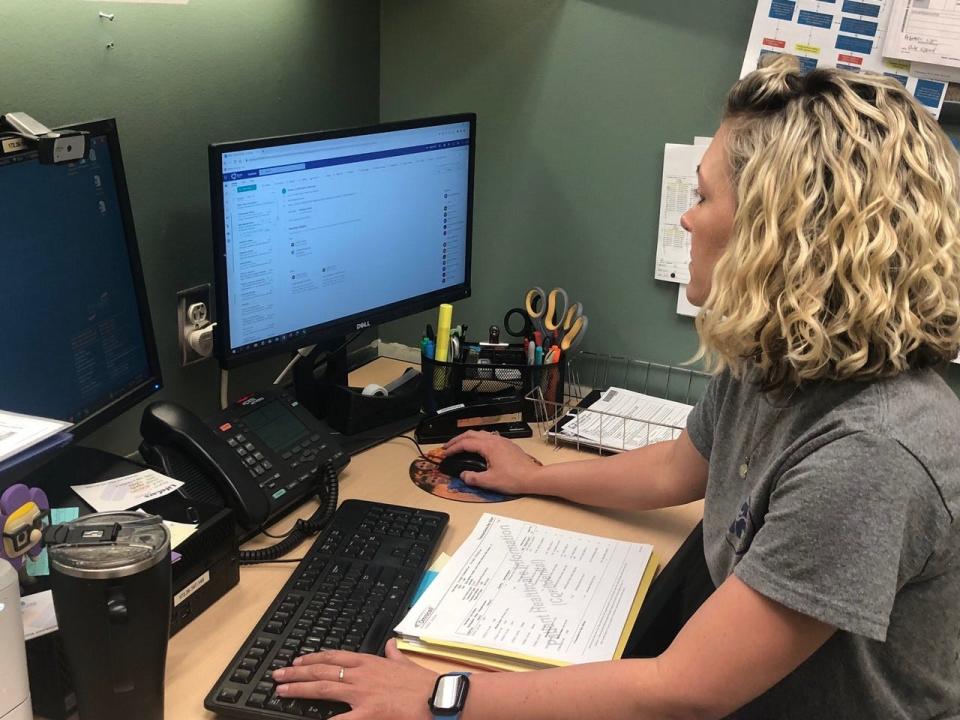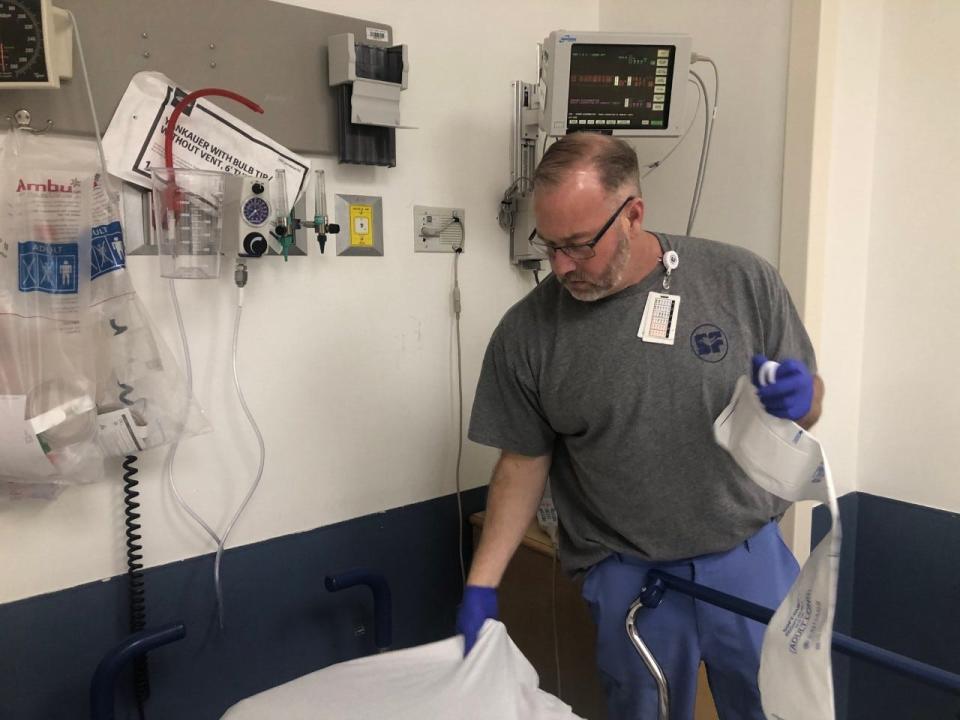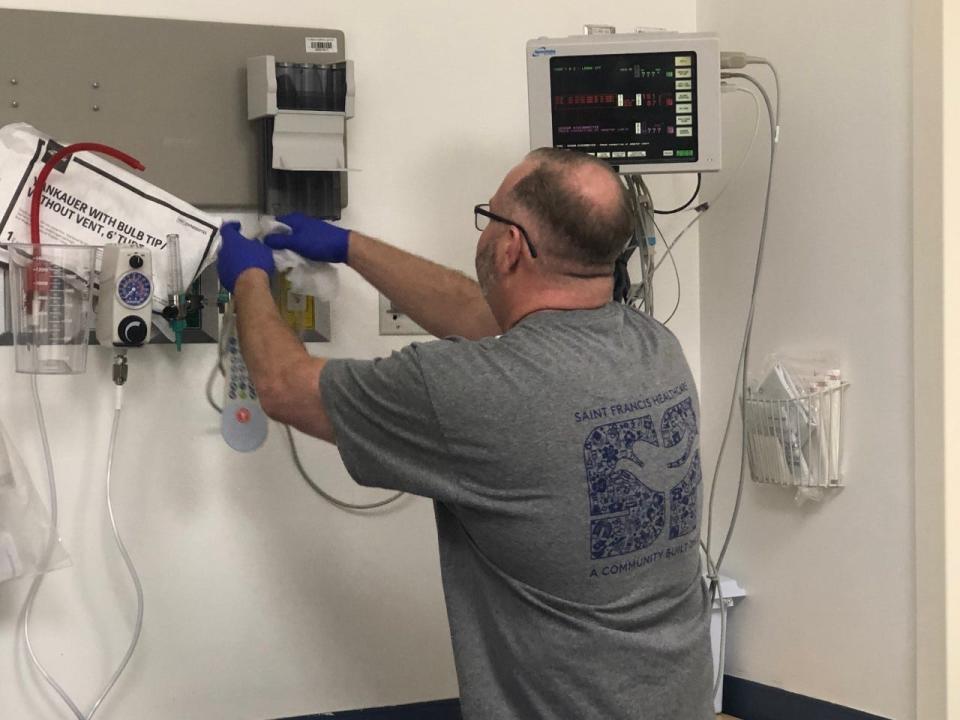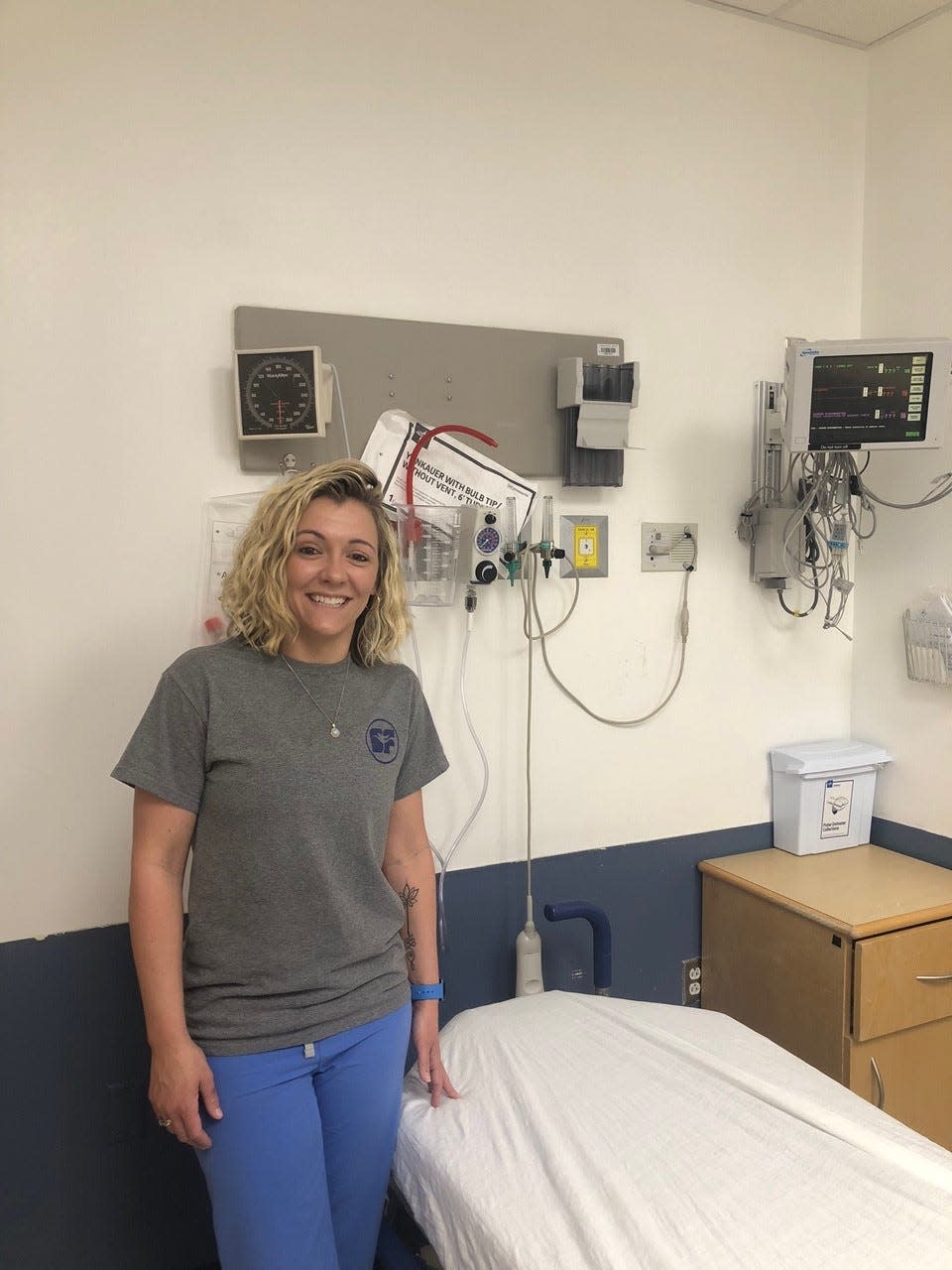These Memphians switched careers to become nurses. Now they hope others take the leap, too
Before becoming a nurse Audrey Mills worked with a very different type of patient: the animals at the Memphis Zoo.
Mills, now the emergency department manager at Saint Francis Hospital-Bartlett, originally went to college with the intention of becoming a doctor, but by graduation had decided the path wasn’t for her. So she took her biology degree into the animal world and over several years at the zoo cared for the pandas, the elephants ― including being present at the birth of an elephant calf ― and then the primates.
“I’ve always been an animal person… I loved it,” she said. “I probably would have stayed for forever if I didn't really start getting the urge that I needed to grow.”
Her grandmother, a strong force in her life, had been a nurse and Mills felt called to the profession. During clinical rotations, she fell in love with the emergency department and started at Baptist Memorial Hospital-Tipton, the same hospital her grandmother worked at.

Hospital news:Shelby County is searching for $350 million to build a new Regional One
Memphis news:Le Bonheur President Michael Wiggins departs for top job at Texas hospital
Looking for a larger hospital, she joined Saint Francis about nine years ago and besides a five-month stint at a dermatology clinic hasn’t looked back.
Her colleague Cary Hamilton, also a nurse in the Saint Francis emergency department, took an even more dramatic career change when he left the automotive world for nursing school.
“It's a great career to always be bettering yourself,” he said. “If you happen to go back to school and become a nurse, I mean, you're not only bettering yourself, but you're going to make a difference.”
Solving the nursing shortage
Both Mills and Hamilton are encouraging others to think about making the switch from other career paths to nursing like they did.
Conversations about the nursing shortage in the United States have become so mainstream since the start of the COVID-19 pandemic, it can almost seem passé. But for the nurses who live with the shortage every day, it is anything but.

“There was already a nursing shortage prior to (COVID-19) and then COVID was tough because it was really, really hard for healthcare workers across the board,” Mills said. “Now that we're all kind of, though… kind of on the backside of it, like we want to go back to normal, but it's very difficult because we are still so short.”
And as the shortage persists, the need continues to grow. The U.S. Bureau of Labor Statistics projects 203,200 openings for registered nurses each year through 2031 when nurse retirements and workforce exits are factored into the number of nurses needed in the U.S. The U.S. Census Bureau reported that by 2034 there will be more people over the age of 65 ― a group that typically has more medical needs ― than under 18 in the U.S.
There are a lot of ideas about how to solve the nursing shortage, but experts agree there is no one solution. Mills and Hamilton represent one way to try to chip away at the shortage ― having mid-career professionals switch from other occupations to nursing.
Healthcare:This brain surgery is a last chance, and there’s only one place in Memphis to get it
Cancer treatment:‘Transform the way we treat cancer’: Methodist among first to get new cancer treatment
'I found my calling'
For most of his adult life, the idea of a career in healthcare had never crossed Hamilton’s mind.
“I love cars. Anything that has a motor in it and goes fast is what I love,” he said.

A heart attack made him reevaluate his plans for the future and conversations with friends who were nurses steered him toward healthcare. Hamilton has been at Saint Francis for about eight years ― with brief breaks at the VA hospital and some travel nursing work in the early days of the COVID-19 pandemic.
In nursing, he said he’s found a career he truly loves. Even on sad days when patients die, Hamilton said he never goes home and feels like it was a bad day. Each day he feels like he helps someone, whether that’s with medical care or the human touch — hugging someone who just lost a loved one or making a kid who’s afraid of needles smile and laugh while they get a shot.
“I found my calling while I was in nursing school,” Hamilton said. “It’s been amazing ever since.”
For people worried about leaving their current career, Mills said nursing is a stable job with opportunities anywhere in the world. And there are many different paths to take. Nurses work in many different roles inside hospitals and clinics but other places, like schools, also need nurses. And with the continual growth of telehealth, some nurses are now able to work from home.

'A public health crisis': What state's rejection of HIV funds could mean for Shelby County
Healthcare news:Blue Cross, Methodist reach agreement for TennCare patients
Mills and Hamilton both said many skillsets can carry over from other career paths to make someone a good nurse. They both learned how to read body language and nonverbal cues ― from people and animals ― in their past jobs, which have made them better able to assess the needs of their patients.
The drive to work hard, empathy for people who are different from you and willingness to learn are key attributes that make successful nurses, Mills said.
At the end of the day, an abundance of opportunities exist in the nursing field and many more nurses are needed, Hamilton said.
“I would like people know that… you can make a difference in people's lives,” he said. “We have to have healthcare, without it we're in a lot of trouble. So we definitely need more nurses.”
Corinne S Kennedy covers healthcare, economic development and real estate for The Commercial Appeal. She cna be reached via email at Corinne.Kennedy@CommercialAppeal.com
This article originally appeared on Memphis Commercial Appeal: Nursing shortage: How career changes can be part of solution

